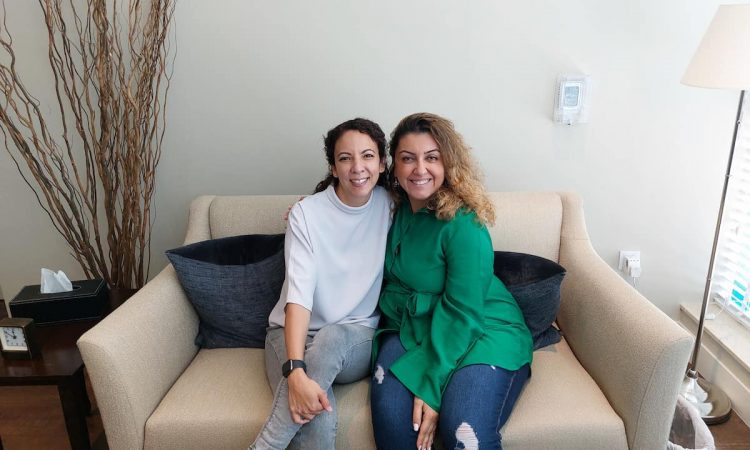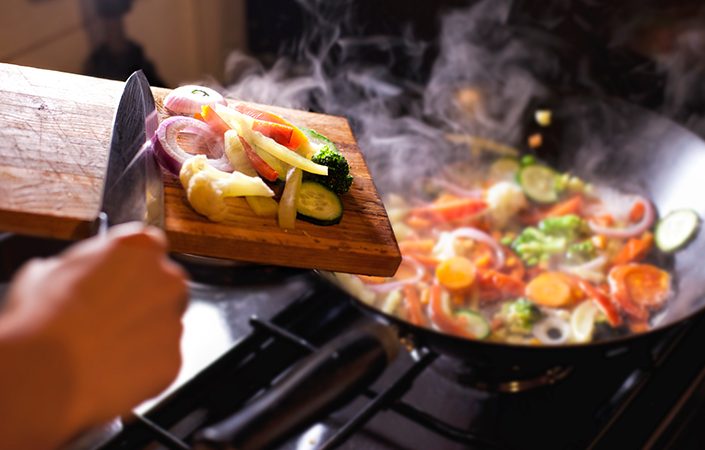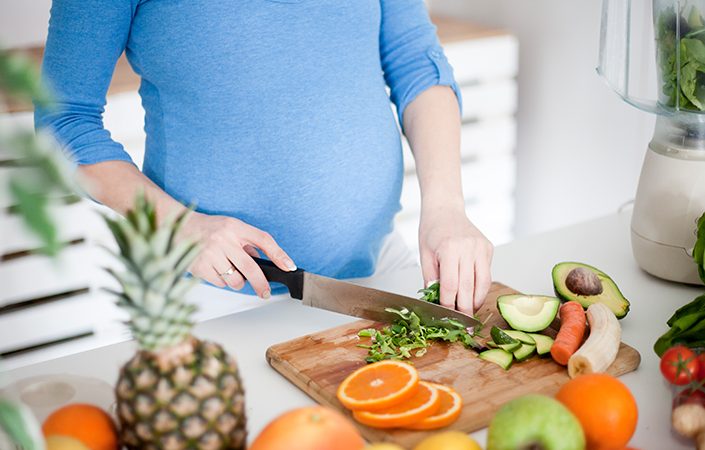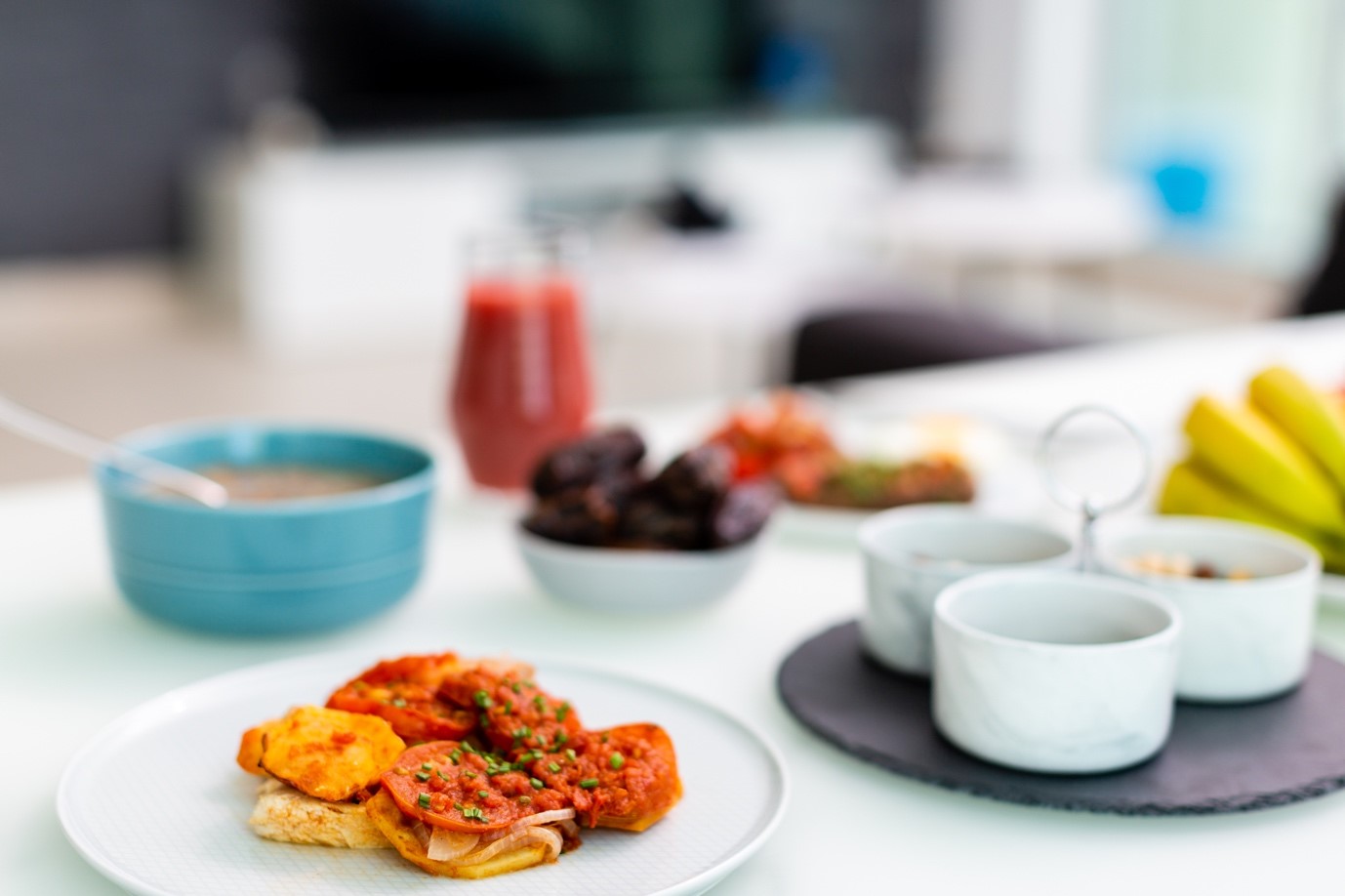
Ramadan, otherwise known as the Holy Month, is the ninth month in the Islamic calendar during which observers fast from sunrise to sunset. During this fast, no food or drink is consumed and it is intended to be a time for reflection, charity and cleansing. But not everyone does it the healthy way, so we’ve pulled together a few tips and advice to help you stay on track this year.
What are Suhoor and Iftar?
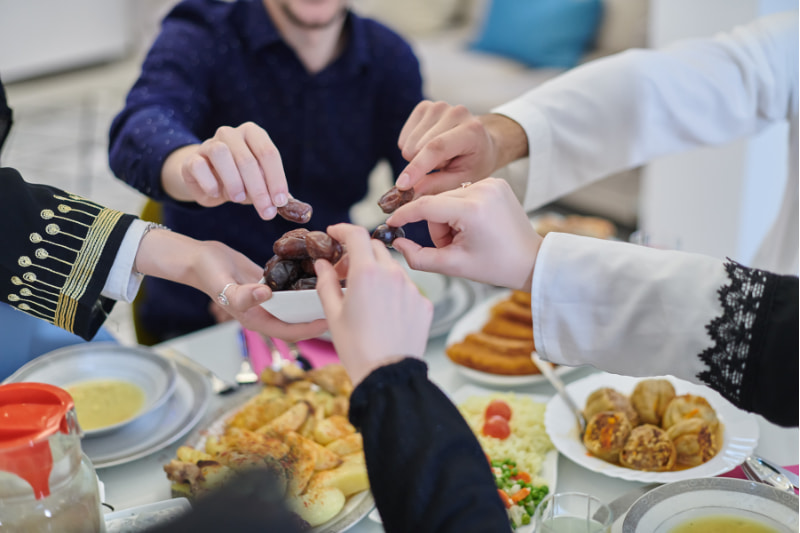
During Ramadan, two main meals are consumed: Suhoor, which is served before dawn, and Iftar, which is served after sunset. Suhoor should always be a hearty, healthy meal that provides the necessary energy to carry you through a full day of fasting.
Then, when the sun sets, the Maghrib prayer starts, and the day’s fast is broken with Iftar. Traditionally the fast is broken by eating dates before beginning the Iftar meal and eating and drinking can continue throughout the night until Suhoor.
What Should I Eat During Ramadan?
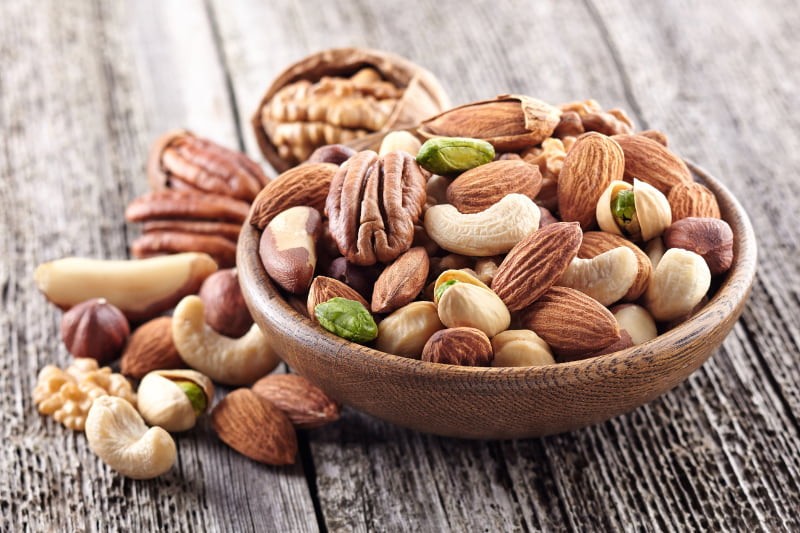
Both meals should include fresh fruit, vegetables, protein, carbohydrates, fibre and healthy fats. When Ramadan falls during hot summer months it is important to include hydrating foods.
Suhoor should include a wholesome meal that gives you the energy to sustain your everyday activities until Iftar. These include complex carbohydrates, hydrating fruit and vegetables, beans, chickpeas, lentils and good fats like avocado, raw nuts and olive oil.
A few examples of sustaining, healthy Suhoor meals
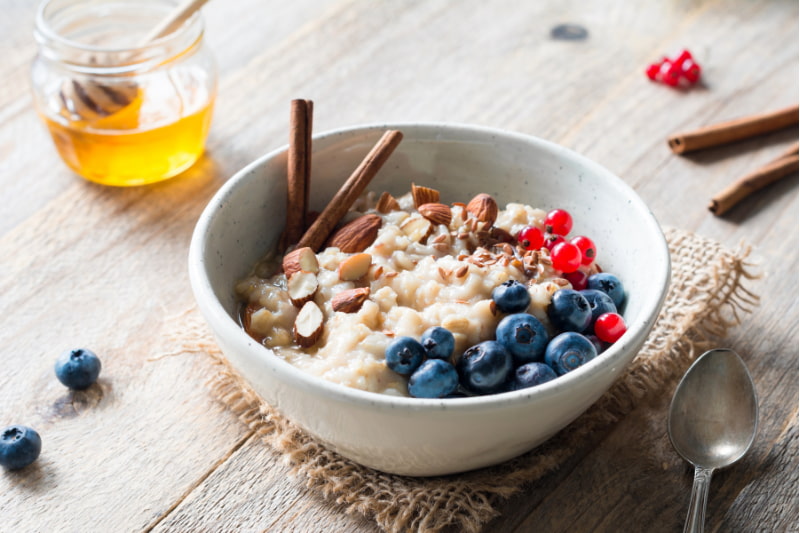
- Whole-wheat toast with mashed avocado, hummus, cottage cheese, low-fat labneh, and halloumi, as well as fresh vegetables like cucumber, tomatoes or peppers.
- Oatmeal porridge (made with milk / non-dairy milk or water) topped with fruit and nuts.
- Low-fat yogurt with fresh or dried fruit, nuts & seeds.
Can I Skip Suhoor?
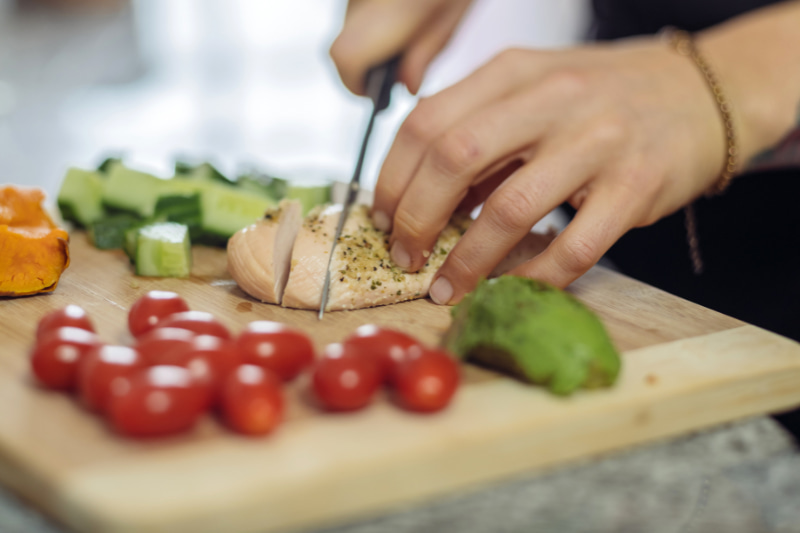
When it comes time for Suhoor the thought of sleep may seem more appealing than waking up to eat but you should never skip Suhoor. (in fact you can prepare this meal before going to bed allowing you to sleep for as long as possible).
Staying Hydrated During Ramadan

In the hours between Iftar and Suhoor make sure you drink plenty of water to help you stay hydrated during fasting hours and avoid dehydrating things like coffee, tea and sodas. Given the high temperatures at this time of year hydration is even more important. The average person needs around 8-10 cups of water to replenish the fluids lost during the day.
How to Have a Healthy Iftar Meal

Try to eat a couple of small snacks between breaking your fast and going to sleep, things like raw nuts, a smoothie or a healthy low-fat yoghurt are good examples.
Then during Iftar try to eat slowly and mindfully. Traditionally the 2 or 3 dates provide you with natural sugars for energy and are rich in potassium which helps with your; plus, they are a great source of fibre.
Make sure your Iftar meal all food groups to maintain a varied and a well-balanced diet throughout the month. Try to avoid highly processed food that is high in salt, sugar and unhealthy fats. Swap out deep fried nibbles that are high in calories and tans fats and rather opt for their baked alternatives – or even better, fresh fruit and vegetables.
What Should I Drink During Ramadan?

Traditional Ramadan drinks such as jallab may be delicious and contain a handful of vitamins but they are also a rich source of calories. Rather stay hydrated with water, coconut water, home-made smoothies and hydrating food like soups, raw salads and stews – just go easy on the salt.
The Holy Month is considered a time to practice self-discipline, form new healthy habits and focus on bringing back a balanced and sustainably healthy lifestyle. The best way to approach your diet while fasting should be similar to the way you should approach eating regularly.
Written by Lauren Jacobsen, Nutrition Director
